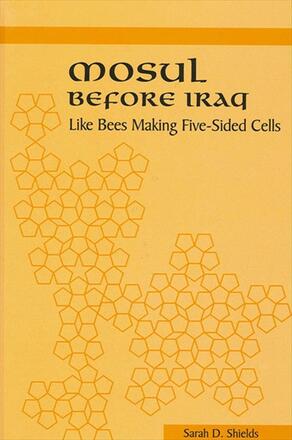
Mosul before Iraq
Like Bees Making Five-Sided Cells
Alternative formats available from:
Using original source documents, this book portrays nineteenth-century Mosul--a large city currently in Iraq's "no-fly" zone.
Description
Drawing upon original source documents, Mosul before Iraq paints a portrait of the region during the turbulent nineteenth century. What emerges is a picture of citizens less focused on Europe or Istanbul and more on centuries-old relationships among its economic and social spheres. By arguing that the region belongs to a broader geographic, economic, and political space which crosses current national borders, the book explains the continuing conflict over the status of Mosul.
Like bees building unconventional cells, Mosul's people innovated during the nineteenth century. They worked to incorporate new methods, new products, and new interactions into networks that they had already constructed in their crafts, their commerce, their city, and their region.
Sarah D. Shields is Associate Professor in the History Department at University of North Carolina, Chapel Hill.
Reviews
"This book expands our knowledge of Mosul in the nineteenth and early twentieth centuries by presenting new information culled from diplomatic archives, travel accounts, and documents of the Ottoman central government. Shields offers a revisionist view of the impact of nineteenth-century economic integration by looking at this process from the vantage of a province rather than from the viewpoint of international trade. " — Hasan Kayali, coauthor of Arabs and Young Turks: Ottomanism, Arabism, and Islamism in the Ottoman Empire, 1908–1918